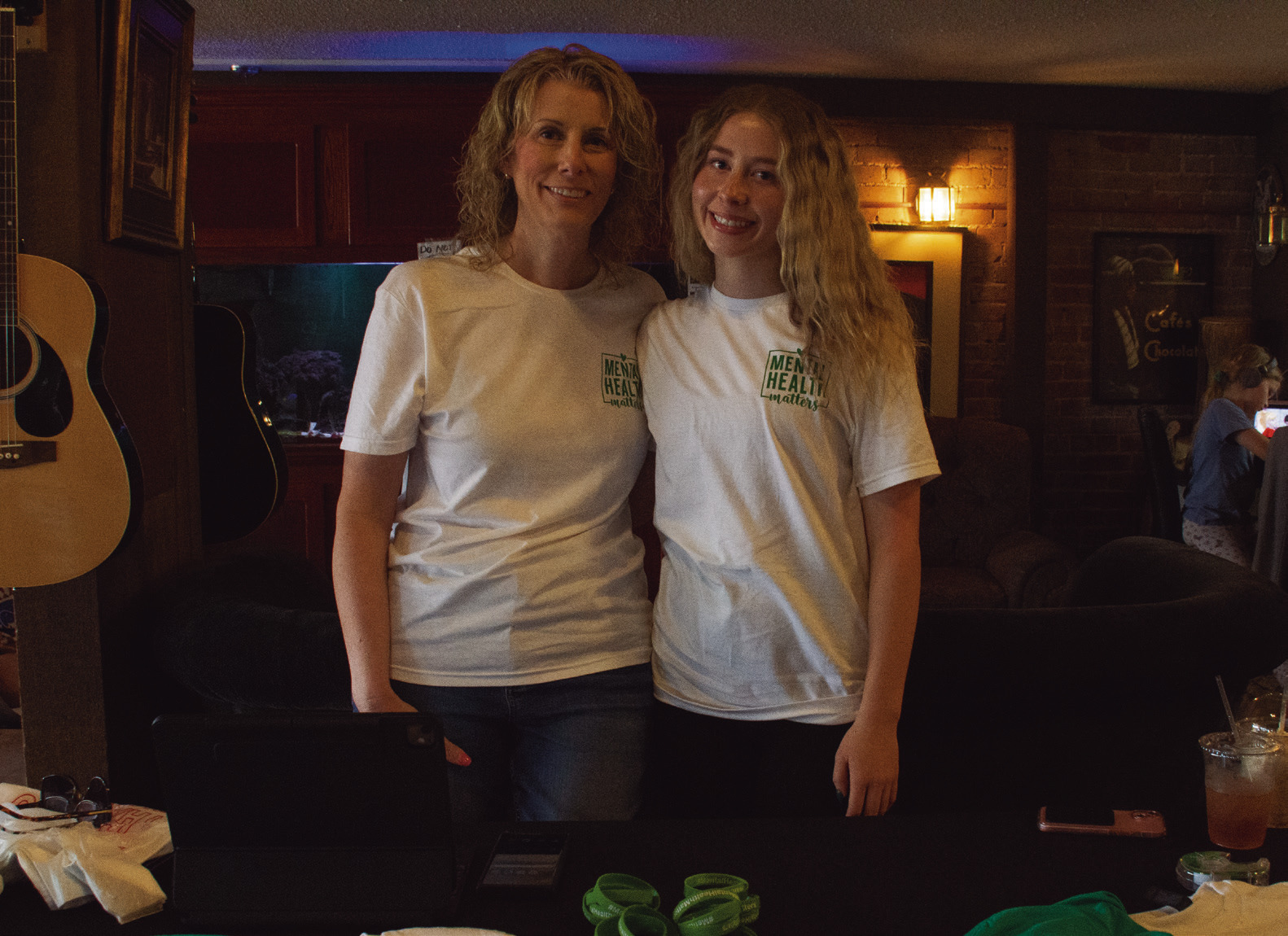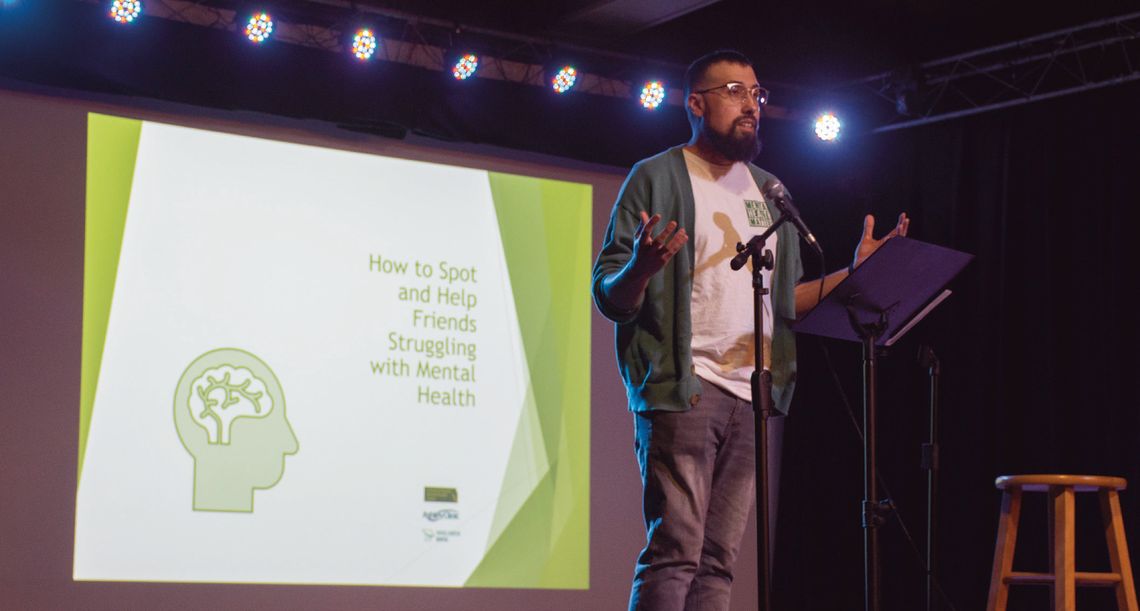A mental health night was held at FireEscape Coffeehouse, organized by a local teen, for other teens on Saturday, May 17.
Marie Wright of the Neosho Valley Busy Bees 4-H Club was nominated for Neosho County Fair Queen and adopted a platform supporting mental health awareness. This inspired her to organize the You Good? Mental Health Night. She partnered with Ashley Clinic, the Southeast Kansas Mental Health Center, and FireEscape Coffeehouse for the event.
Marie’s mother Shawna said green was both the 4-H color, and the color associated with mental health awareness.
“Everything fell into place the way it needed to,” Shawna said about the event.
Marie said the event was a way for people to reach out to others, or learn how to reach out to those who may be struggling.
“‘You good?’ is a way to encourage people to check in on each other,” Marie said.
Marie also hosted mental health awareness tables at Ashley Clinic and Tractor Supply this month. Through these tables, she said that others have shared their experiences with depression, suicidal thoughts, anxiety, and other mental health conditions.
“We’ve heard some hard stories,” Shawna said. “Our overall goal would be for people to remember to check in on each other.”
Saturday’s event featured a presentation by Therapist Cody Haviland. Haviland works as a school-based therapist at Royster Middle School and Humboldt Middle School.
“Events like these are important because when I was growing up, we didn’t talk about mental health,” Haviland said. “The more it is normalized, the more it can help the next generation live a little easier.”
A large part of advocating for mental health awareness is finding ways to decrease the stigma around mental illnesses, therapy, and medication.
“We don’t stigmatize physical health ailments,” Haviland said. “We talk about physical ailments openly, and I hope we can one day get to the point where we can do that with our mental health.”
In his presentation, Haviland first discussed how to identify individuals who may be struggling with their mental health. Haviland said there are sometimes behavioral changes such as being withdrawn, irritability, skipping school, making dark posts online, or suddenly ceasing online activity. He said one could also look for “emotional red flags” such as sadness, hopelessness, or talking about self-harm. Physical symptoms could include appetite changes and fatigue. Haviland said they may try to avoid going to school or work, or try to get sent home once there.
In order to be an effective support person, Haviland said one should be compassionate and empathetic, listen without judgment, and encourage them to talk to a trusted adult.
One way to support friends is by offering to go with them to speak to an adult. Haviland said this could be a parent, teacher, or counselor. One could also share mental health resources and hotlines, such as teenmentalhealth. org, or the mental health hotline at 866-9732241. Individuals can also text or call 988.
“You can’t fix everything, and you don’t have to,” Haviland said. “When we are suffering our brains tell us to suffer alone, but when we have friends checking in on us – you don’t have to suffer alone.”
After the presentation, attendees were able to ask questions during a question- and-answer session. One such question was “Why does it feel like I have 1,000 friends online, but still feel alone?” Haviland said that it can be difficult to be authentic online, and that we enjoy being with others in-person. Haviland said it is easier to be vulnerable with people while having a faceto- face interaction, and that vulnerability is key to a good friendship.
“Remind yourself that your friends will stay with you,” Haviland said.
Another question asked how one could support a friend whose parents were going through a divorce. Haviland suggested that they could offer to listen, should the friend want to talk about it. He also said one could invite the friend to events outside of their home, and be willing to offer space for them to get away from whatever they are facing at home for a little while.
Haviland said that many mental health-improving techniques look like spending time with others.
“When we are in community with each other, we can make a difference,” Haviland said.
Those seeking additional resources can reach out to Southeast Kansas Mental Health Center by calling 620-431-7890.








